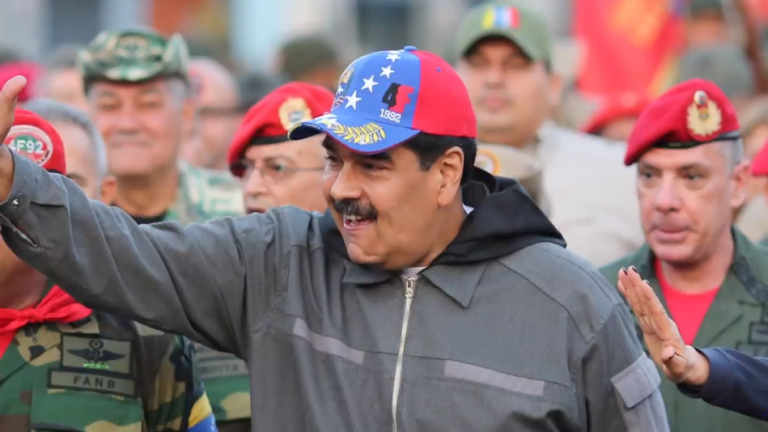Venezuela’s Dec. 6 legislative elections were a “political farce,” the top U.S. diplomat said, a week after the State Department imposed sanctions on CEIEC, a Chinese electronics company doing business with the South American socialist regime.
Mike Pompeo said the election, the results of which supposedly favored dictator Nicolas Maduro, was “a fraud and a sham, not an election.”
“On December 6, the illegitimate Maduro regime in Venezuela staged a political farce intended to look like legislative elections. Fortunately, few were fooled,” Pompeo said in a statement.
The National Electoral Council of Venezuela had declared that Maduro’s United Socialist Party had won two-thirds of national assembly seats. The election was boycotted by former national assembly president Juan Guaidó and other members of the opposition.
“The United States, along with numerous other democracies around the world, condemns this charade which failed to meet any minimum standard of credibility.”
Success
You are now signed up for our newsletter
Success
Check your email to complete sign up
Guaidó is recognized by the United States and dozens of other countries as the legitimate Interim President of Venezuela.
The opposition leader encouraged his supporters in a video message, saying: “Although I cannot promise a magic solution today, I can tell you with certainty and security: You are not alone. We will not give up. … We are going to give everything until we win.”
US sanctions and China-Venezuela ties
In a Nov. 30 press statement, Pompeo had directed the State Department to bar U.S. and foreign companies from doing business with the state-run China National Electronics Import & Export Corporation, citing its support of the Maduro regime’s suppression of the democratic process in Venezuela.
A statement published the same day by the U.S. Treasury Department said that Office of Foreign Assets Control (OFAC) sanctions were put in place because of CEIEC’s implementation of a “commercialized version of China’s ‘Great Firewall’” in the South American country.
Venezuela has been experiencing popular unrest following more than two decades of economic collapse and deteriorating human rights under socialist leader Maduro and his late predecessor, Hugo Chavez. Its political allegiances have made it an ideal ally for other authoritarian regimes, such as Cuba, Iran, and Communist China.
The U.S. Treasury noted how Venezuela’s state-run Internet and phone service provider, CANTV, was absorbing the experiences of the Chinese Communist Party (CCP) in establishing controls on free speech. This includes blocking independent online media and blogs, as well as tracking and censoring individual dissidents.

‘Brazenly rigged’
Sanctions on CEIEC freezes the firm’s U.S.-based assets and gives other companies a 45-day grace period to cancel their partnerships with the company before penalties apply.
The Trump administration has sanctioned numerous Chinese companies, especially those with links to the People’s Liberation Army (PLA) and organizations responsible for human rights abuse.
CEIEC was previously penalized by the U.S. government in 2006 for providing weapons to Iran and Syria.
The U.S., European Union, and many other democracies have refused to acknowledge the results of the 2018 Venezuelan election, in which Maduro claimed he won a second six-year term.
“Maduro brazenly rigged the [recent legislative] elections in his favor through the illegal seizure of political parties’ names and ballot logos, manipulation of the process by his loyalist electoral council, violence and intimidation, and other undemocratic tactics.” Pompeo continued in his statement about the Dec. 6 race.
Pompeo further stated: “We stand with Interim President Guaidó and the Venezuelan people who have struggled for years to restore democracy and liberty to Venezuela.”
By Nadia Ghattas and Leo Timm
Follow us on Twitter or subscribe to our email list
















